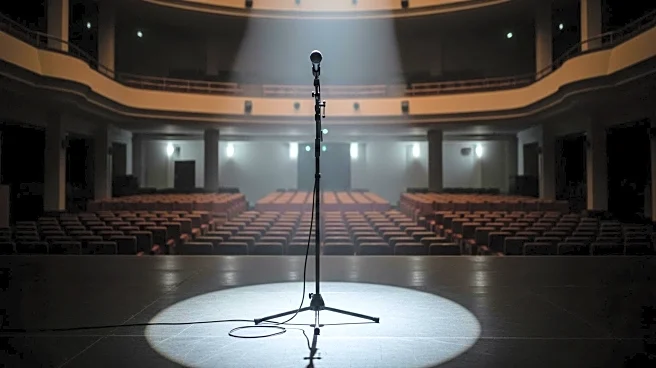What's Happening?
Pop singer Lola Young shocked fans when she collapsed on stage during a performance at a music festival in New York City. The incident occurred after Young had canceled a previous show due to a 'sensitive matter.' During her performance, Young appeared flushed and emotional, powering through four songs before falling backwards mid-song. Her band and security quickly assisted her, and she was carried off stage after being down for about 30-45 seconds. Young's manager, Nick Shymansky, had previously announced the cancellation of Friday's show, citing protective measures for Young's mental health.
Why It's Important?
Lola Young's collapse on stage highlights the pressures faced by performers in the music industry, particularly regarding mental health. The incident underscores the importance of mental health awareness and support for artists, who often experience intense scrutiny and stress. Young's openness about her mental health challenges may encourage other artists to speak out and seek help, fostering a culture of understanding and support within the industry. The event also raises questions about the impact of public performances on personal well-being and the need for protective measures.
What's Next?
Following the incident, Young may take time to focus on her health and well-being, potentially leading to further cancellations or adjustments to her performance schedule. Her management team may implement additional support measures to ensure her safety during future performances. The event may prompt discussions within the music industry about mental health support for artists, leading to potential changes in how performers are supported and protected. Fans and industry colleagues may express concern and support for Young, influencing her public image and career trajectory.
Beyond the Headlines
Young's collapse on stage highlights broader issues of mental health in the entertainment industry, where performers often face significant pressures and expectations. The incident may lead to increased awareness and advocacy for mental health support, encouraging industry stakeholders to prioritize the well-being of artists. It also underscores the need for open conversations about mental health challenges, reducing stigma and fostering a supportive environment for those affected.










